#SouthwesternInfluence
Explore tagged Tumblr posts
Text
50 Most Popular Types of Interior Design Styles- 01
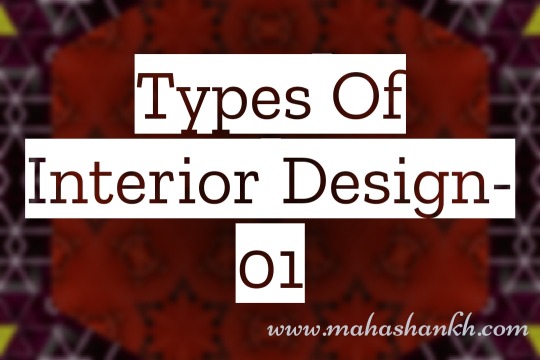
Here's a list of 50 types of interior design: - Traditional Interior Design - Modern Interior Design - Contemporary Interior Design - Transitional Interior Design - Industrial Interior Design - Mid-Century Modern Interior Design - Scandinavian Interior Design - Bohemian Interior Design - Rustic Interior Design - Coastal Interior Design - French Country Interior Design - Art Deco Interior Design - Mediterranean Interior Design - Eclectic Interior Design - Minimalist Interior Design - Contemporary Classic Interior Design - Shabby Chic Interior Design - Gothic Interior Design - Art Nouveau Interior Design - High-Tech Interior Design - Hollywood Regency Interior Design - Nautical Interior Design - Southwestern Interior Design - Victorian Interior Design - Moroccan Interior Design - Asian Zen Interior Design - Retro Interior Design - Cottage Interior Design - Tuscan Interior Design - Cultural Fusion Interior Design - Urban Modern Interior Design - Jungalow Interior Design - Swedish Gustavian Interior Design - Rural Farmhouse Interior Design - Country Chic Interior Design - Avant-Garde Interior Design - Luxury Interior Design - Vintage Interior Design - Tropical Interior Design - Artisanal Interior Design - Retro-Futuristic Interior Design - Post-Modern Interior Design - Regency Interior Design - Neoclassical Interior Design - Mission Style Interior Design - Steampunk Interior Design - Egyptian Revival Interior Design - Industrial Chic Interior Design - French Provincial Interior Design - Zen Minimalist Interior Design Details of Interior Design Traditional Interior DesignHallmarks of Traditional Design: Modern Interior Design Contemporary Interior Design Transitional Interior Design Industrial Interior Design Mid-Century Modern Scandinavian Interior Design Bohemian Interior Design Rustic Interior DesignHallmarks of Rustic Design Coastal Interior Design French Country Interior Design Art Deco Interior Design Mediterranean Interior Design Eclectic Interior Design Finding Serenity in Simplicity: A Guide to Minimalist Interior Design 50 FAQs on Types of Interior Design:
Details of Interior Design
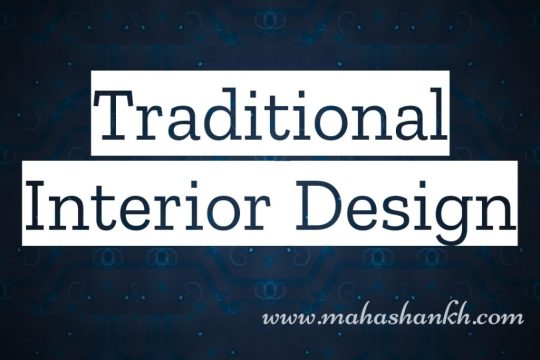
types of interior design
Traditional Interior Design
Hallmarks of Traditional Design: - Timeless Appeal: Unlike fad-driven trends, traditional design transcends the years. It draws inspiration from the best of 18th and 19th-century European styles, creating a look that feels familiar yet never dated. - Warm and Inviting Atmosphere: Think rich, wood tones, plush upholstery, and layered textiles. Traditional spaces embrace comfort and exude a sense of warmth that welcomes you in. - Symmetry and Order: Balance and harmony are key. Furniture placement often reflects symmetry, and architectural details like wainscoting and crown molding add a sense of refinement. - Classic Furniture Silhouettes: Wingback chairs, roll-arm sofas, and four-poster beds are just a few examples. While you might find updated finishes or modern touches, the overall silhouettes remain grounded in tradition. - Layering and Texture: Traditional interiors are all about depth and dimension. Expect layers of window treatments, throws draped over furniture, and rugs layered on top of rugs. It's a feast for the senses! - Jewel Tones and Neutrals: Color palettes often feature rich jewel tones like emerald green, sapphire blue, and ruby red, balanced with calming neutrals like beige, cream, and taupe. The result is a sophisticated and eye-catching combination. - Classic Patterns and Textiles: Think damask, florals, plaids, and stripes. These timeless patterns grace upholstery, curtains, and even wallpaper, adding a touch of elegance and visual interest. - Antiques and Heirlooms: Traditional spaces often celebrate the past through the inclusion of treasured antiques and family heirlooms. These pieces add a personal touch and tell a story. Modern Twists on Tradition: While traditional design evokes a sense of timelessness, it can be easily adapted to modern sensibilities. Here are a few ways to achieve a fresh take: - Incorporate Modern Fabrics and Furnishings: Mix sleek lines and minimalist pieces with classic silhouettes for a dynamic contrast. - Play with Color and Pattern: Go bold with a statement accent wall or mix unexpected patterns for a playful touch. - Embrace Natural Light: Large windows and open floor plans can bring a modern airy feel while retaining traditional elements. - Focus on Sustainability: Opt for eco-friendly materials and vintage finds to give your traditional space a modern conscience. Remember, the beauty of traditional design lies in its flexibility. You can tailor it to your personal taste and create a space that feels both timeless and uniquely yours. Whether you're drawn to the grandeur of English country houses or the simplicity of Shaker style, there's a traditional aesthetic waiting to be embraced. Now, I'd love to hear more about your vision for your traditional space! Are there any specific elements you're drawn to? What kind of feeling do you want to create? The more details you share, the better I can assist you in crafting your dream traditional haven.
Modern Interior Design

types of interior design Modern interior design! Stepping into a sleek, minimalistic haven sounds pretty darn good. Let's explore this cool, contemporary world, shall we? Key characteristics of Modern Design: - Less is More: Clean lines, uncluttered spaces, and minimalist aesthetics reign supreme. It's all about form and function, creating a streamlined and unfussy environment. - Neutral Color Palettes: Think whites, beiges, greys, and blacks as the base, with pops of color used sparingly and strategically. The focus is on creating a calming and sophisticated backdrop. - Natural Materials: Embrace the beauty of wood, stone, glass, and leather. These materials bring warmth and texture to the space, while still adhering to the minimalist ethos. - Open Floor Plans: Walls don't always have to define everything. Modern spaces favor openness and flow, allowing light and air to move freely. - Bold Accents: While minimalism is key, modern spaces aren't shy about statement pieces. A sculptural lamp, a vibrant artwork, or a unique furniture piece can add personality and visual interest. - Strategic Lighting: Task lighting, recessed lighting, and ambient lighting are meticulously used to create different moods and highlight architectural features. - Sustainability: Modern design often champions eco-friendly materials and practices. Opting for recycled materials, energy-efficient appliances, and natural light utilization are common features. Modern Twists for a Personalized Touch: - Incorporate Mid-Century Modern: Add a touch of vintage flair with iconic pieces from the 1950s and 60s. Think Eames chairs, hairpin legs, and Sputnik chandeliers. - Embrace Industrial Accents: Exposed brick, metal pipes, and concrete elements can add a touch of urban edge to your modern space. - Go Maximalist: While traditional modern is known for its minimalism, you can still embrace bold patterns, vivid colors, and statement art for a more eclectic and personal interpretation. - Bring in the Greenery: Plants add life and color to any space. Opt for low-maintenance options like succulents or snake plants for a modern touch.
Contemporary Interior Design

Contemporary Interior Design Contemporary design Let's dive into this ever-evolving, dynamic world where the past whispers inspiration and the future sets the trends. Contemporary design is a fascinating dance between the familiar and the fresh, offering a space that feels current, stylish, and always on the pulse of the moment. Key Pillars of Contemporary Style: - Evolving Elegance: Unlike its older sister, traditional design, contemporary embraces change and reinvention. It borrows elements from various styles, including modern, mid-century, and even bohemian, creating a unique and ever-shifting aesthetic. - Clean Lines and Streamlined Silhouettes: Functionality meets form in contemporary spaces. Furniture boasts clean lines, minimal embellishments, and geometric shapes, creating a sense of order and spaciousness. - Neutral Palettes with Pops of Color: Think calming beiges, whites, and greys as the base, with splashes of bolder tones through statement artwork, accent cushions, or decorative objects. This keeps the space feeling airy while injecting personality. - Texture Play: While minimalism reigns supreme, contemporary design loves to mix and match textures. Think woven throws on leather sofas, wood accents against smooth marble surfaces, or a combination of soft and rough textiles. This adds depth and visual interest. - Natural Materials with Modern Twists: Wood, stone, and glass remain favorite materials, but they're often presented in unique ways. Think wood with sleek finishes, stone countertops with metallic accents, or glass tables with sculptural bases. - Bold Lighting: Lighting plays a crucial role in contemporary spaces. Recessed lighting complements natural light, statement pendants become artwork, and task lighting ensures functionality, all contributing to the overall ambiance. - Technology Integration: Contemporary spaces embrace smart technology for a seamless and convenient living experience. Think hidden speakers, automated lighting systems, and sleek appliances that blend seamlessly with the décor. Modern Twists for Personalization: - Embrace Sustainable Solutions: Eco-friendly materials, recycled furniture, and energy-efficient practices are increasingly important in contemporary design. - Play with Unexpected Accents: Don't be afraid to introduce one-of-a-kind vintage pieces or pops of vibrant color to give your space a personal touch. - Blur the Lines: Open floor plans are key, but you can also use strategic furniture placement or room dividers to create distinct zones within a larger space. - Bring Nature In: Large windows, skylights, and plenty of greenery connect your space to the outdoors and evoke a sense of calm and rejuvenation. Remember, contemporary design is all about flexibility and customization. You can choose elements from different styles, experiment with textures and colors, and personalize the space to reflect your unique personality and lifestyle.
Transitional Interior Design
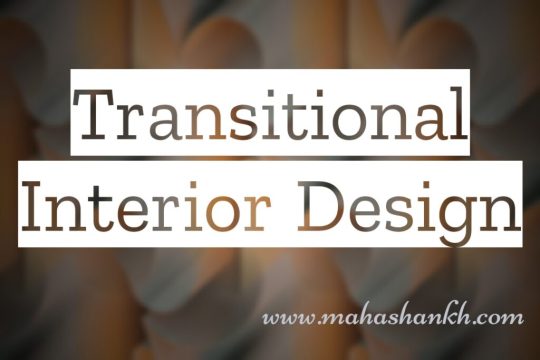
transitional Interior Design Transitional design! You have excellent taste – it's no wonder you're drawn to this charming blend of traditional and modern styles. Transitional design is all about finding that sweet spot between timeless elegance and contemporary cool, creating a space that feels both familiar and fresh. Let's explore its unique beauty! Hallmarks of Transitional Style: - Best of Both Worlds: It bridges the gap between the formality of traditional design and the simplicity of modern. You'll find classic silhouettes alongside clean lines, rich textures mixed with minimalist accents, and warm colors balanced with neutral palettes. - Comfort and Sophistication: Transitional spaces prioritize both. Plush, upholstered furniture invites you to relax, while clean lines and refined details maintain a sense of elegance. - Balance and Symmetry: While not as rigid as traditional interiors, transitional spaces still embrace order and balance. Furniture placement often reflects symmetry, and design elements complement each other through color, texture, and scale. - Natural Materials and Modern Finishes: Wood, stone, and leather provide grounding warmth, while sleek finishes like metal and glass add a touch of contemporary shine. This creates a visually interesting interplay between old and new. - Neutral Color Palettes with Pops of Personality: A calming base of beiges, whites, and greys provides a versatile canvas. You can then personalize the space with splashes of color through accent pieces, artwork, or statement rugs. - Layered Textures and Patterns: Transitional interiors welcome richness and depth. Think of woven throws on sofas, patterned pillows, and layered rugs. But remember to maintain a sense of balance to avoid overwhelming the space. - Antique Accents with Modern Touches: Vintage finds and family heirlooms add a touch of history and personality. Pair them with sleek furniture or unexpected modern elements to create a unique and dynamic contrast. Modern Twists for a Personal Touch: - Embrace Sustainability: Opt for eco-friendly materials, recycled furniture, and natural light for a contemporary twist on tradition. - Go Bold with Textures: Don't shy away from mixing and matching textures like velvet, leather, and woven textiles. This adds visual interest and depth. - Incorporate Bold Artwork: A statement piece of art can add a modern touch and inject personality into your space. - Play with Scale and Proportion: Mix and match furniture of different sizes and scales to create a dynamic and visually interesting layout.
Industrial Interior Design
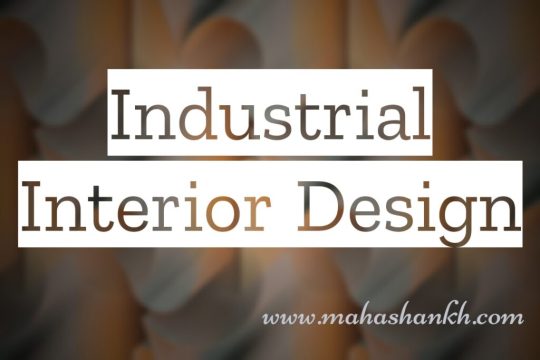
Industrial Interior Design industrial! A style that breathes raw beauty and whispers tales of urban adventures. You have excellent taste, my friend. Let's delve into the gritty glamour of industrial interior design! Key characteristics of Industrial Style: - Embracing the Exposed: Think exposed brick walls, pipes and ductwork, concrete floors, and weathered wood beams. These aren't just imperfections, they're the heart and soul of the space. - Neutral Color Palettes: A cool and subdued palette reigns supreme. Shades of gray, black, white, and brown create a sophisticated backdrop for pops of color and contrasting textures. - Metal Takes Center Stage: Iron, steel, and copper add a touch of industrial edge. Metal is found in furniture, lighting, accents, and even architectural elements. - Minimalism with Personality: While clutter is banished, industrial spaces aren't sterile. Vintage finds, statement artwork, and unique furniture pieces inject personality and tell a story. - Large Windows and Open Floor Plans: Natural light is a must, flowing through expansive windows and illuminating spacious layouts. Think lofts, warehouses, and factories repurposed into stylish living spaces. - Functional Meets Stylish: Furniture is often utilitarian, favoring clean lines and sturdy materials. Think leather sofas, metal chairs, and reclaimed wood tables. But, functionality doesn't mean sacrificing style – industrial pieces can be surprisingly sleek and eye-catching. - Vintage Finds and Repurposed Treasures: Give old objects a new lease on life! Industrial décor embraces vintage furniture, reclaimed materials, and industrial-inspired lighting fixtures. This adds character and a touch of history to the space. Modern Twists for a Personalized Touch: - Blend with Other Styles: Don't be afraid to mix and match! Industrial elements can co-exist beautifully with mid-century modern, Scandinavian minimalism, or even bohemian touches. - Embrace Sustainable Solutions: Opt for recycled materials, repurposed furniture, and energy-efficient practices for an eco-friendly twist. - Incorporate Plants and Greenery: A touch of nature softens the industrial edge. Hanging plants, succulents, and other low-maintenance greenery add life and color to the space. - Play with Lighting: Use different types of lighting – pendant lights, track lighting, task lighting – to create a layered and atmospheric look.
Mid-Century Modern
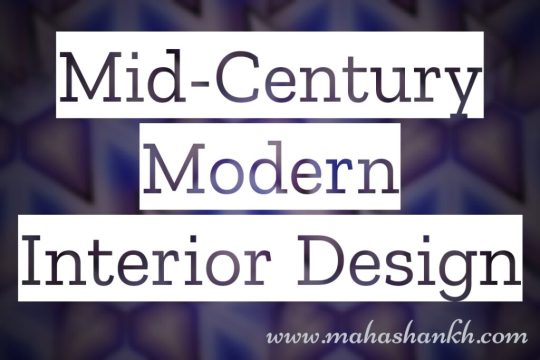
Mid-Century Modern Mid-century modern, ah, the epitome of cool sophistication! This iconic style, spanning roughly from the 1940s to the 1960s, continues to captivate with its clean lines, bold pops of color, and emphasis on functionality. Let's dive into what makes it so special: Hallmarks of Mid-Century Modern: - Clean Lines and Organic Forms: Think sleek silhouettes, streamlined furniture, and minimal ornamentation. Curved edges and geometric shapes dance together in perfect harmony. - Natural Materials and Man-Made Innovation: Wood, leather, and glass mingle with plastic, chrome, and vinyl. This blend of classic and modern materials creates a unique and dynamic aesthetic. - Pops of Vibrant Colors: Muted tones like beige and gray form the base, but mid-century modern isn't afraid of a colorful accent. Mustard yellow, teal, olive green, and burnt orange add a playful touch. - Form Follows Function: Every piece has a purpose. Furniture is designed for comfort and practicality, maximizing space and promoting ease of movement. - Integration with Nature: Large windows, sliding glass doors, and open floor plans blur the lines between indoors and outdoors. Natural light floods the space, creating a sense of connection with the surroundings. Read the full article
#ArtDecoglam#Bohemianvibes#CoastalLiving#ContemporaryDesign#EclecticFusion#FarmhouseAesthetics#FrenchCountry#GothicRevival#Industrialchic#JapaneseZen#MediterraneanFlair#Mid-centurymodern#MinimalistStyle#NauticalTheme#Retrofuturism#RusticCharm#ScandinavianInteriors#Shabbychic#SouthwesternInfluence#TraditionalDecor#TransitionalDesign#Urbanloft#Victorianelegance#VintageRevival
0 notes